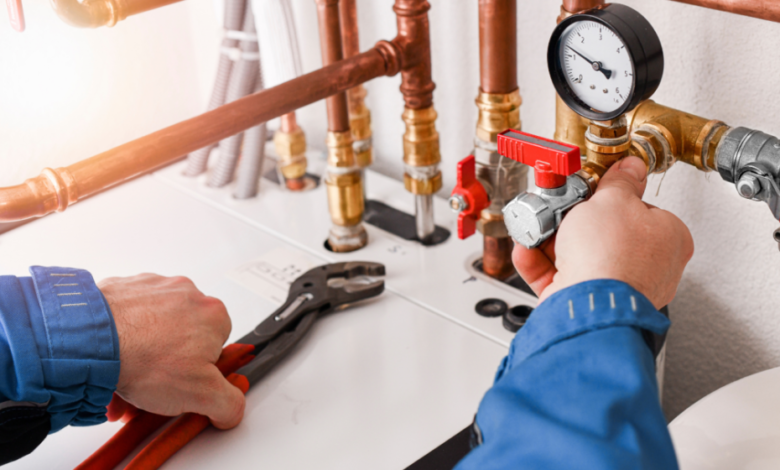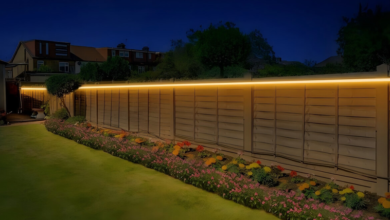Why Is Low Water Pressure a Sign of a Bigger Issue?

Low water pressure is more than just an inconvenience—it can be a red flag for serious plumbing problems. If you notice that your faucets are trickling instead of flowing, or your shower isn’t delivering a strong stream, it’s time to take the issue seriously. While the cause may sometimes be minor, such as a partially closed valve, persistent low water pressure can be a sign of a much larger underlying problem. In most cases, it’s essential to consult a professional plumber to accurately diagnose and address the issue.
Understanding Water Pressure
Water pressure is the force that pushes water through your pipes and out of your fixtures. When water pressure drops significantly, it disrupts everyday activities like showering, washing dishes, or watering your garden. Homeowners often ignore the early signs of low pressure, thinking it’s temporary. However, doing so can allow a more serious issue to develop. That’s why a licensed plumber should always investigate the cause of sustained low water pressure.
Potential Causes of Low Water Pressure
1. Pipe Leaks
One of the most common causes of low water pressure is a hidden leak in your plumbing system. When water escapes from the pipes before reaching your fixtures, you’ll experience reduced flow. This not only affects your water pressure but also leads to higher utility bills and water damage. A plumber can perform a pressure test and use advanced tools to detect and locate the leak with minimal damage to your property.
2. Corroded Pipes
Older homes often have galvanized steel pipes, which are prone to internal corrosion. Over time, mineral buildup and rust can narrow the inside of the pipe, restricting water flow. You may not notice a difference overnight, but water pressure will gradually decrease. A plumber can inspect your piping system and recommend replacing old pipes with newer, more efficient materials like copper or PEX.
3. Clogged Pipes
Blockages from debris, sediment, or mineral deposits can also lead to low water pressure. This is especially true in areas with hard water. If only one fixture is affected, the problem may be localized. However, if multiple fixtures have low pressure, a bigger blockage may be present in the main supply line. A skilled plumber can clean or replace the affected pipes to restore normal pressure.
See also: Home Upgrades That Instantly Elevate Your Space and Lifestyle
Problems Within the Water Supply System
Sometimes the issue isn’t in your home at all. Municipal water supply problems, such as a broken main or maintenance work, can temporarily reduce water pressure. However, if your neighbors aren’t experiencing the same issue, it’s likely a problem specific to your property. A plumber will be able to determine whether the issue is internal or external and guide you on the best course of action.
Faulty Pressure Regulator
Many homes are equipped with a water pressure regulator to ensure the pressure stays within a safe range. If this regulator malfunctions, it can cause the pressure to drop significantly. Replacing or adjusting a pressure regulator is not a DIY task—it requires the expertise of a licensed plumber. The plumber will assess whether the regulator is faulty and make the necessary adjustments or replacements.
Hidden Plumbing System Damage
Low water pressure can also be a symptom of larger structural issues within your plumbing system, such as underground pipe damage or slab leaks. These problems can go undetected for months and lead to major repairs if not addressed quickly. Only a professional plumber has the tools and knowledge to inspect for such damage using cameras and pressure detection equipment.
Why You Shouldn’t Ignore Low Water Pressure
Ignoring low water pressure can result in worsening problems over time. What starts as a minor annoyance can become a major headache if left unchecked. For example, a slow leak can cause mold growth, structural damage, and high water bills. Hiring a plumber early on can help you avoid extensive repairs and restore your system to full functionality.
How a Plumber Can Help
A licensed plumber does more than just fix pipes. They perform a full diagnostic of your plumbing system to uncover the root cause of low pressure. Whether it’s a clogged pipe, a leak, or a faulty valve, a plumber has the training and tools needed to resolve the issue effectively. They can also offer preventative solutions to help you avoid similar problems in the future.
From inspecting valves and regulators to checking for hidden leaks, a plumber plays a vital role in protecting your home’s plumbing health. Don’t take low water pressure lightly—call a trusted plumber to ensure your system is safe, efficient, and reliable.
Summary
In conclusion, low water pressure is often a symptom of a larger issue lurking within your plumbing system. Whether it’s a leak, corrosion, or a faulty regulator, addressing the problem promptly is crucial. A professional plumber will not only diagnose the issue but also provide long-lasting solutions that restore proper water flow and protect your home from further damage. When in doubt, never hesitate to reach out to a qualified plumber—your water pressure, and your peace of mind, depend on it.




